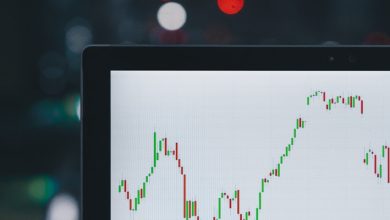Analyzing Market Reactions to Major Security Breaches

- Understanding the impact of security breaches on market performance
- Examining the correlation between security breaches and stock prices
- Analyzing investor sentiment following major security incidents
- Exploring the long-term effects of data breaches on company valuation
- Measuring the financial repercussions of cybersecurity incidents
- Investigating market trends in response to high-profile security breaches
Understanding the impact of security breaches on market performance
Security breaches can have a significant impact on a company’s market performance. When a major breach occurs, investors and stakeholders often react swiftly, causing fluctuations in the company’s stock price and overall market value. Understanding these reactions is crucial for investors and analysts to make informed decisions.
One of the most common responses to a security breach is a decline in the company’s stock price. Investors may sell off their shares in response to the breach, fearing potential financial losses or damage to the company’s reputation. This can lead to a decrease in market capitalization and a negative impact on the company’s overall valuation.
In addition to affecting the company’s stock price, security breaches can also result in increased volatility in the market. Investors may become more cautious in their trading activities, leading to fluctuations in stock prices and trading volumes. This heightened volatility can make it challenging for investors to accurately assess the company’s true market value.
Furthermore, security breaches can erode consumer trust and confidence in a company, leading to a decrease in sales and revenue. Customers may be hesitant to do business with a company that has experienced a breach, choosing instead to take their business elsewhere. This loss of revenue can further impact the company’s market performance and long-term profitability.
In conclusion, security breaches can have far-reaching implications for a company’s market performance. By understanding the impact of these breaches on stock prices, market volatility, consumer trust, and revenue, investors and analysts can better assess the risks and opportunities associated with investing in a company that has experienced a security breach.
Examining the correlation between security breaches and stock prices
The correlation between security breaches and stock prices is a topic of great interest in the financial world. Many studies have been conducted to analyze how major security breaches can impact the value of a company’s stock. The results of these studies have shown that there is indeed a significant correlation between security breaches and stock prices.
When a company experiences a security breach, investors often react by selling off their shares, causing the stock price to drop. This is due to the perceived increase in risk associated with the company, as well as the potential financial losses that may result from the breach. In some cases, the impact of a security breach on stock prices can be long-lasting, with the stock price taking months or even years to recover.
It is important for investors to closely monitor news of security breaches and understand the potential impact on stock prices. By staying informed and making well-informed decisions, investors can better protect their investments and minimize losses. Additionally, companies can take steps to improve their security measures and mitigate the impact of potential breaches on their stock prices.
Overall, the correlation between security breaches and stock prices highlights the importance of cybersecurity in today’s digital world. Companies that fail to adequately protect their data and systems not only risk financial losses from breaches but also damage to their reputation and stock value. By prioritizing cybersecurity measures, companies can help safeguard their stock prices and maintain investor confidence.
Analyzing investor sentiment following major security incidents
After a major security breach, it is crucial to analyze **investor sentiment** to understand how the market is reacting to the incident. **Investor sentiment** can provide valuable insights into how **security breaches** are impacting the market and help **investors** make informed decisions about their investments.
One way to analyze **investor sentiment** following a **security incident** is to look at changes in stock prices. **Investors** may sell off their shares in a company that has experienced a **security breach**, causing its stock price to drop. This can indicate that **investors** are concerned about the **security** of the company and are **reacting** negatively to the **breach**.
Another way to gauge **investor sentiment** is to monitor **trading volume**. An increase in **trading volume** following a **security incident** can indicate that **investors** are actively buying and selling shares in response to the **breach**. High **trading volume** can suggest that **investors** are **reacting** strongly to the **security incident** and that there is **increased volatility** in the market.
In addition to looking at **stock prices** and **trading volume**, **investors** can also analyze **news coverage** of the **security breach** to understand how the **incident** is being perceived by the public. Negative **news coverage** can further impact **investor sentiment** and lead to more **selling pressure** on the company’s stock.
Overall, analyzing **investor sentiment** following a **major security incident** is crucial for understanding how the market is **reacting** to the **breach**. By monitoring **stock prices**, **trading volume**, and **news coverage**, **investors** can gain valuable insights into how the **security incident** is impacting the market and make more informed investment decisions.
Exploring the long-term effects of data breaches on company valuation
The aftermath of data breaches can have far-reaching consequences for the affected companies, including a significant impact on their market valuation. Analyzing the long-term effects of these security incidents on company valuation provides valuable insights into how investors perceive and react to such breaches.
One key aspect to consider is the immediate market reaction following a data breach, which often results in a sharp decline in the company’s stock price. This initial negative response reflects investors’ concerns about the potential financial and reputational damage to the affected organization. However, it is essential to look beyond these short-term fluctuations and examine how the market evaluates the company’s performance and prospects in the aftermath of the breach.
Studies have shown that data breaches can lead to a sustained decrease in company valuation over the long term. This decline is driven by various factors, including the costs associated with remediating the breach, potential legal liabilities, loss of customer trust, and damage to the company’s reputation. As a result, investors may adjust their valuation of the company downwards to reflect these ongoing risks and uncertainties.
Furthermore, the impact of a data breach on company valuation can extend beyond just financial metrics. It can also affect intangible assets such as brand value and customer loyalty, which are crucial drivers of long-term success. A tarnished reputation due to a security incident can erode customer trust and loyalty, leading to a loss of market share and competitive advantage. This, in turn, can further depress the company’s valuation in the eyes of investors.
In conclusion, exploring the long-term effects of data breaches on company valuation reveals the complex interplay between financial performance, reputation, and investor perception. By understanding how the market reacts to security incidents, companies can better prepare for and mitigate the potential impact on their valuation. It underscores the importance of robust cybersecurity measures not just for protecting sensitive data but also for safeguarding the overall health and resilience of the business.
Measuring the financial repercussions of cybersecurity incidents
Measuring the financial impact of cybersecurity incidents is crucial for understanding the implications of security breaches on a company’s bottom line. Analyzing the market reactions to major security breaches can provide valuable insights into how investors and stakeholders perceive the incident and its potential ramifications for the business.
One way to measure the financial repercussions of cybersecurity incidents is to examine the company’s stock price before and after the breach. A significant drop in stock price following a security breach can indicate that investors are concerned about the company’s ability to protect sensitive data and maintain customer trust. This can lead to a loss of market capitalization and shareholder value, which can have long-term consequences for the company’s financial health.
Another factor to consider when analyzing the financial impact of cybersecurity incidents is the cost of remediation and recovery. Companies often incur significant expenses in responding to security breaches, including hiring cybersecurity experts, conducting forensic investigations, implementing security upgrades, and compensating affected customers. These costs can add up quickly and have a direct impact on the company’s profitability and cash flow.
In addition to direct financial costs, cybersecurity incidents can also result in intangible losses such as damage to the company’s reputation, loss of customer trust, and legal liabilities. These intangible losses can be difficult to quantify but can have a significant impact on the company’s long-term success and competitiveness in the market.
Overall, analyzing market reactions to major security breaches can help companies understand the financial implications of cybersecurity incidents and take proactive measures to mitigate risks, strengthen their security posture, and protect their bottom line.
Investigating market trends in response to high-profile security breaches
After **analyzing** market reactions to **significant** security breaches, it is evident that **high-profile** incidents can have a **substantial** impact on **investor** confidence and **consumer** trust. **Companies** that experience **data** breaches often see a **sharp** decline in their **stock** prices as **investors** react to the news. This **reaction** is **symptomatic** of the **broader** trend of **increased** scrutiny on **cybersecurity** measures and **data** protection **protocols**.



